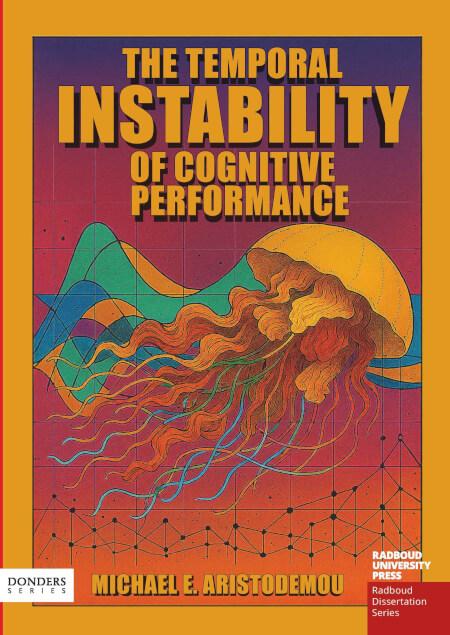The temporal instability of cognitive performance
Synopsis
This thesis contributed to the empirical knowledge of cognitive variability through psychometric modeling of theory-based descriptive and mechanistic structures fitted to neural and behavioral data. We learned that cognitive variability is multidimensional: varying across tasks (Chapter 4) and timescales (Chapter 5). Chapter 3 taught us that, in a battery of response time tasks, cognitive variability is a correlate of inattention problems and is modulated by attentiveness as predicted by a noradrenergic mechanism. The results of Chapter 6 showed us that cognitive variability in a simple response-time task can be manipulated using methylphenidate, a transporter blocker of dopamine and noradrenaline. But contrary to prior hypotheses, the effect of methylphenidate could not be attributed to dopamine or a change in neural variability. Lastly, by examining the neural antecedents of cognitive variability, we learned that cognitive variability in a working memory task is driven by uncertainty in our encoded representations, which in turn depends on the neural resources spent to encode stimuli in the preceding trial (Chapter 7).

Published
Series
Categories
License

This work is licensed under a Creative Commons Attribution-NonCommercial-NoDerivatives 4.0 International License.

